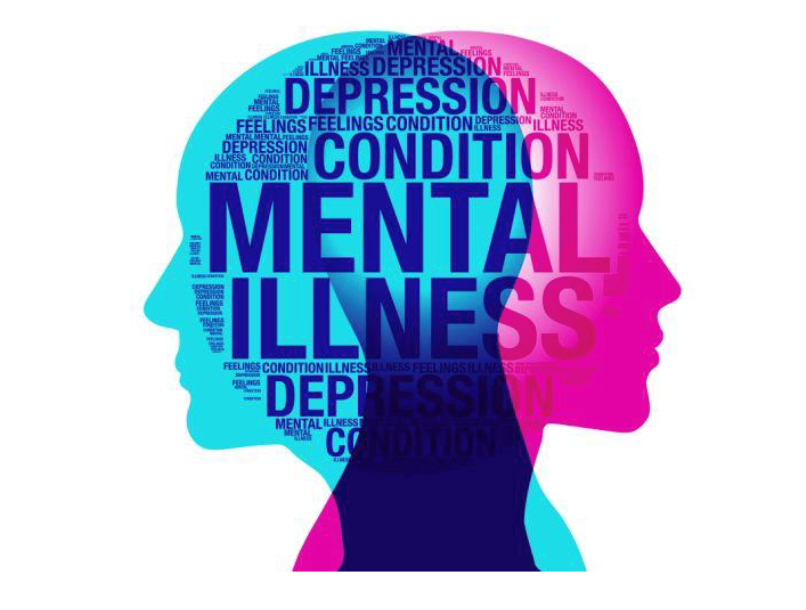Learn Effective Mental Health Services for every single Demand
Learn Effective Mental Health Services for every single Demand
Blog Article
Exploring the Link In Between Nourishment and Mental Wellness Enhancement
The ramifications of our nutritional choices on mental wellness have been increasingly acknowledged by health specialists and researchers alike. As we browse the complicated landscape of modern way of lives, uncovering the nuanced partnership in between nourishment and psychological wellness renovation may hold the trick to unlocking a much deeper understanding of our psychological and cognitive resilience.
Effect of Food on Mood
The partnership in between dietary selections and mood policy is a critical element of understanding the influence of food on psychological well-being. Study has actually shown that particular foods can affect neurotransmitter activity, impacting mood and emotions. For instance, foods rich in omega-3 fats, such as fatty fish, walnuts, and flaxseeds, have been linked to reduced prices of depression and boosted mood guideline.
In addition, intricate carbohydrates found in whole grains, fruits, and vegetables can help regulate blood sugar levels, which in turn can have a favorable effect on mood security. On the other hand, diets high in refined foods, sugar, and hydrogenated fats have actually been connected with a raised risk of clinical depression and mood conditions.
In addition, the gut-brain link plays a significant function in state of mind guideline. The gut microbiome, affected by the foods we eat, can interact with the mind through the gut-brain axis, impacting state of mind, stress levels, and total mental wellness. Making conscious and nourishing nutritional choices is essential for preserving a healthy and balanced and well balanced state of mind.

Crucial Nutrients for Anxiousness

In addition, the amino acid tryptophan, found in foods like turkey, eggs, and nuts, is a forerunner to serotonin production, a neurotransmitter recognized for its role in advertising feelings of calmness and well-being. Vitamin B complex, particularly B6 and B12, are also crucial for maintaining a healthy and balanced nerves and may help in reducing anxiousness symptoms.
Integrating these vital nutrients right into a healthy diet can have a favorable effect on managing stress and anxiety and enhancing overall psychological health.
Dietary Strategies for Anxiety

One dietary strategy for managing depression is concentrating on foods rich in omega-3 fatty acids, such as fatty fish, flaxseeds, and walnuts. Omega-3 fatty acids have actually been connected to reducing inflammation in the brain and improving neurotransmitter function, which can favorably impact mood. Additionally, increasing the usage of fruits, veggies, whole grains, and lean healthy proteins while minimizing the intake of processed sugars and foods might help in reducing depressive symptoms.
Moreover, keeping appropriate levels of vitamin D, either through sunlight exposure or supplements, is essential for supporting psychological health and wellness. Vitamin D deficiency has actually been connected with an enhanced risk of depression, making it critical to make sure adequate consumption of this nutrient. By including these dietary strategies, individuals may successfully match typical therapies for depression and enhance their overall health.
Gut-Brain Axis and Mental Health
Concentrating on the intricate link between the intestinal system and psychological health and wellness, the Gut-Brain Axis plays a pivotal function in influencing cognitive functions and psychological wellness. The Gut-Brain Axis is a bidirectional interaction network between the main anxious system and the enteric nerves, linking the psychological and cognitive centers of the brain with peripheral intestinal tract features. This axis is regulated by an elaborate interaction of neural, immune, endocrine, and metabolic paths.
Study suggests that the make-up of intestine microbiota, the diverse community of bacteria living in the stomach tract, can have a profound influence on psychological wellness. Discrepancies in gut microbiota, referred to as dysbiosis, have actually been connected with problems such as anxiety, stress and anxiety, and also neurodegenerative diseases. Additionally, the intestine microbiota explanation plays a vital role in the production of natural chemicals like serotonin, which is crucial for regulating mood and emotional actions.
Preserving a healthy and balanced gut microbiota with a well balanced diet abundant in fiber, fermented foods, and probiotics is vital for supporting psychological health and wellness (Mental Health Services). Approaches intended at maximizing the Gut-Brain Axis supply encouraging opportunities for improving emotional wellness and cognitive function
Nutrition's Duty in Cognitive Feature
Given the significant influence of the Gut-Brain Axis on mental health, understanding just how nourishment influences cognitive function becomes paramount in promoting overall health. Nourishment plays an essential duty in cognitive function by offering vital nutrients that support brain wellness and optimum efficiency.
Key nutrients such as omega-3 fatty acids, vitamins, anti-oxidants, and minerals are recognized to boost cognitive capacities, including memory, focus, Find Out More and problem-solving skills. Omega-3 fats, located in fatty fish like salmon and nuts, have been linked to enhanced memory and cognitive function. Antioxidants, bountiful in vegetables and fruits, help safeguard brain cells from damages created by cost-free radicals, therefore maintaining cognitive function.
In addition, a well balanced diet plan abundant in entire grains, lean healthy proteins, fruits, and vegetables can favorably affect cognitive feature by maintaining blood sugar degrees and providing continual energy to the brain. Conversely, diets high in processed foods, saturated fats, and sugars have been related to cognitive decline and damaged brain function. Consequently, making informed dietary choices is important for maintaining optimal cognitive feature and overall mental wellness.
Verdict
To conclude, the relationship between nutrition and mental wellness is complex and complex. The effect of food on state of mind, necessary nutrients for anxiousness, dietary techniques for depression, the gut-brain axis, and nourishment's duty in cognitive feature all play vital roles in mental well-being. Recognizing the link between nourishment and psychological health and wellness enhancement is important for promoting total health and attending to mental health concerns. Additional research study look at these guys and recognition in this location are required for advancing therapies and treatments.
The implications of our nutritional choices on psychological well-being have actually been increasingly identified by health specialists and scientists alike. As we browse the complicated landscape of modern-day lifestyles, discovering the nuanced relationship between nourishment and mental health enhancement might hold the secret to unlocking a deeper understanding of our psychological and cognitive resilience.
Structure upon the important nutrients that sustain mental health, particularly in taking care of anxiety disorders, the focus currently shifts towards taking a look at nutritional methods for resolving depression.Focusing on the intricate connection between the intestinal system and psychological health and wellness, the Gut-Brain Axis plays a crucial duty in influencing cognitive functions and psychological health (Mental Health Services). Understanding the connection in between nourishment and psychological health improvement is important for advertising total wellness and dealing with psychological wellness concerns
Report this page